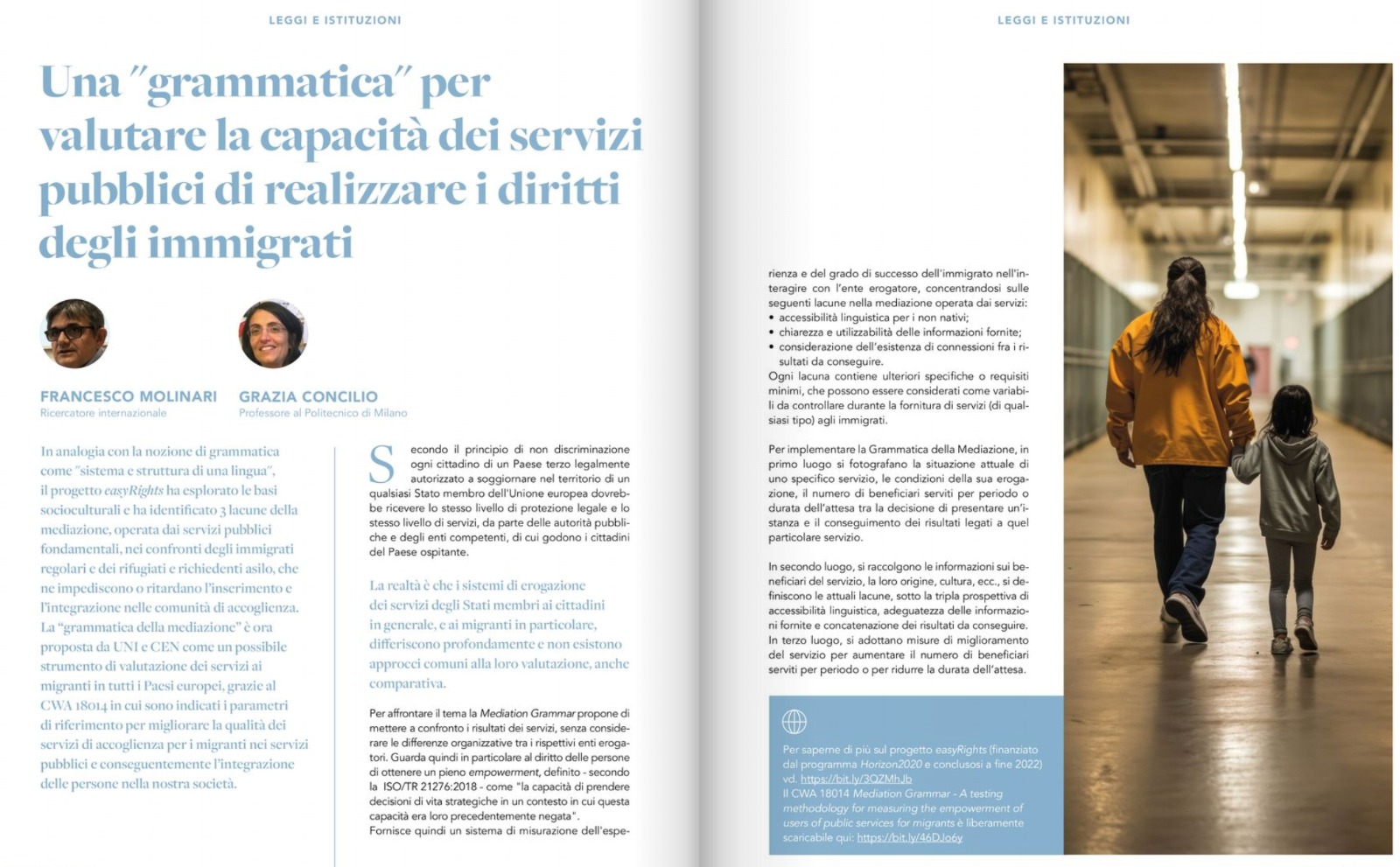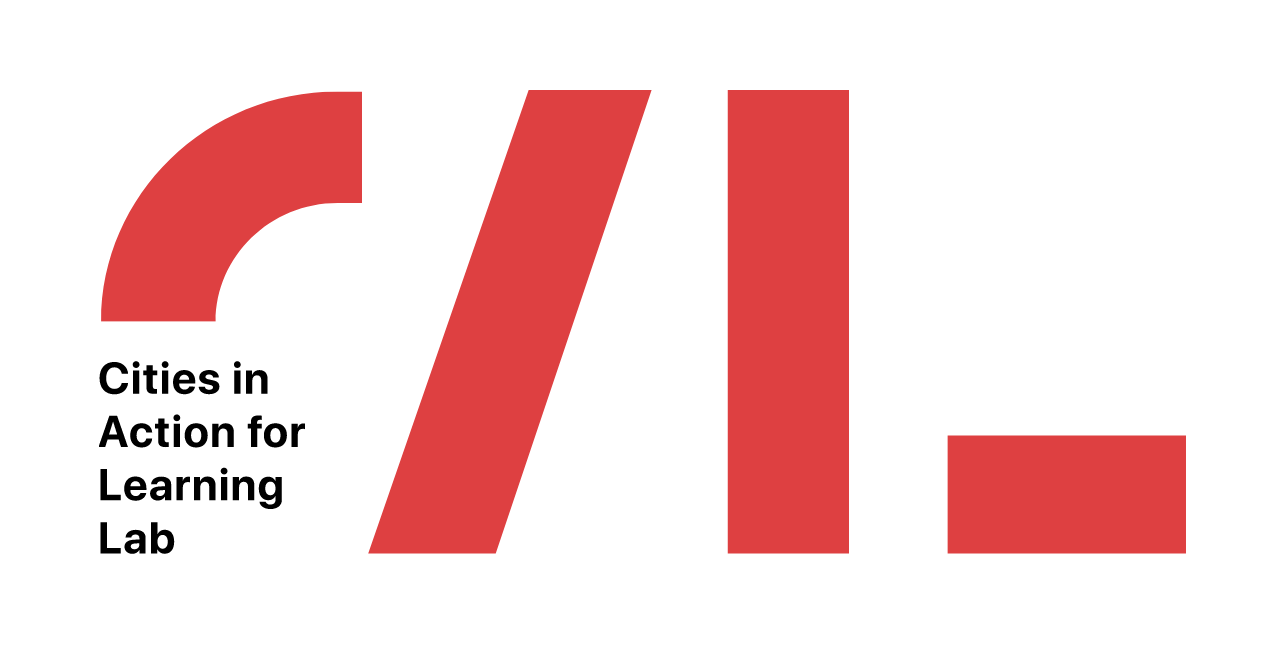
A “grammar” for assessing the quality of public services to fulfill the rights of immigrants
Envisioning Translocality
Enabling Institutions
Enforcing Practices
by Francesco Molinari, International Researcher, and Grazia Concilio, Professor at the Politecnico di Milano University
INTRO
In analogy with the notion of grammar as the “system and structure of a language,” the easyRights project has explored the sociocultural foundations of the mediation operated by public services to regular immigrants and refugees and asylum seekers, and identified three fundamental gaps that hinder or delay their exercise of citizenship rights. The “Mediation Grammar” indicates a direction for improving the integration of foreign born citizens into the host communities. It is proposed as CEN Workshop Agreement (CWA) 18014, in collaboration with UNI and CEN, as an evaluation tool for immigrant reception services in all European countries.
—-
According to the principle of non-discrimination, every citizen of a third national country legally authorized to reside in the territory of any Member State of the European Union should receive the same level of legal protection and the same level of services from public authorities and competent bodies enjoyed by citizens of the host country. The reality is that the service delivery systems of the Member States to citizens in general, and to immigrants in particular, differ profoundly, and there are no common approaches to their evaluation, even comparatively. To address the issue, Mediation Grammar proposes to compare service outcomes without considering organizational differences between respective service providers. It, therefore, particularly looks at people’s right to full empowerment, defined – according to ISO/TR 21276:2018 – as “the ability to make strategic life decisions in a context where this ability was previously denied to them.”
It provides a measurement system for the immigrant’s experience and level of success in interacting with the service provider, focusing on the following gaps in service mediation:
• linguistic accessibility for non-natives,
• clarity and usability of provided information,
• consideration of the existence of connections between the results to be achieved.
Each gap contains further specifications or minimum requirements, which can be considered as variables to be checked during the provision of services – of any kind – to immigrants. To implement the Mediation Grammar, firstly, the current situation of a specific service, the conditions of its delivery, the number of beneficiaries served per period, or the duration of the wait between the decision to apply and the achievement of the results related to that particular service are assessed. Secondly, information about the service beneficiaries, their origin, culture, etc, is collected, and the current gaps are defined under the triple perspective of linguistic accessibility, adequacy of provided information, and concatenation of results to be achieved. Thirdly, service improvement measures are adopted to increase the number of beneficiaries served per period or to reduce the duration of the wait.
—-
To learn more about the easyRights project (financed under the Horizon2020 program and concluded at the end of 2022), see https://bit.ly/3QZMhJb The CWA 18014 Mediation Grammar – A testing methodology for measuring the empowerment of users of public services for immigrants is freely downloadable here: https://bit.ly/46DJo6y
This article is the translated version of the article in Italian: “Una “grammatica” per valutare la capacità dei servizi pubblici di realizzare i diritti degli immigrati” STANDARD, Numero 1, Anno 3 (https://www.flipsnack.com/69AB96AA9F7/standard-n-7-gennaio-2023/full-view.html)



